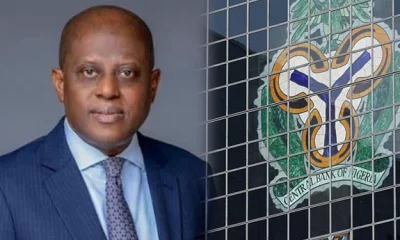As stakeholders in the country’s financial ecosystem awaits the central bank of Nigeria new regulation on Fintech operations, there are anxiety about the impending shake-up of the banking service that may come with allowing Fintech access to more banking services.
Mr. Musa Jimoh, Deputy Director, Banking and Payments System Policy, Central Bank of Nigeria (CBN), had hinted at a recent e-payment conference in Lagos that financial services cannot be provided by banks alone anymore and that the apex bank is reviewing activities around the world in relation to offering Fintech license to operate as banks.
“Regulations on Fintech will come out anytime from now. We are restructuring licensing regime to accommodate risks that Fintechs present in the system and how they can work with banks to mitigate those risks. Fintechs are coming up with products and technology that is unmatched with banks, this also needs to be addressed, “he said.
According to Adewale Adeyipo, chief executive officer, CWG, “Fintech’s are technology-based businesses that compete against, enable and collaborate with financial institutions. Fintech start-up firms are involved in external partnerships with government agencies, financial institutions, universities, industry consultants, research institutions, technology experts, and associations.
“They create a highly integrated software ecosystem that brings with it the expertise, experience, technology, and facilities of all the entities together through these partnerships. The Growth and market success of any Fintech hub originates from an integrated software ecosystem.
“These innovators are effectively employing technology tools to bring in seamless and innovative financial services for the banked and unbanked population in Nigeria. As reported by KPMG, the global Fintech software and services sector are expected to boom as a USD 45 billion opportunities by 2020, growing at a compounded annual growth rate of 7.1 per cent”.
Elsewhere, the Office of the Comptroller of the Currency (OCC) and the Federal Deposit Insurance Corporation (FDIC) in the US are exploring granting federal bank-like licenses to tech-driven firms that offer financial services, such as money transfers and lending.
The plan is part of a broader push by President Donald Trump’s administration to boost small businesses and promote job growth.
Federal licenses would allow Fintech firms, which currently operate under a patchwork of state rules, to reduce their regulatory costs and expand into new regions and products.
However, Fntech firms say they are reluctant to invest heavily in nationwide expansion without access to the payment systems, settlement services, and other Fed tools and the central bank has yet to decide whether to let those lightly-regulated players in.
Many Fed officials fear these firms lack robust risk-management controls and consumer protections that banks have in place.
“They probably do want access to the payments system, but they don’t want the regulation that would come with that access,” St. Louis Fed President James Bullard told Reuters in November. “I am concerned that fintech will be the source of the next crisis,” he added.

 Latest7 days ago
Latest7 days ago
 Trends1 week ago
Trends1 week ago
 Business7 days ago
Business7 days ago
 Latest1 week ago
Latest1 week ago
 Latest7 days ago
Latest7 days ago
 Football7 days ago
Football7 days ago
 Latest1 week ago
Latest1 week ago
 Business7 days ago
Business7 days ago













